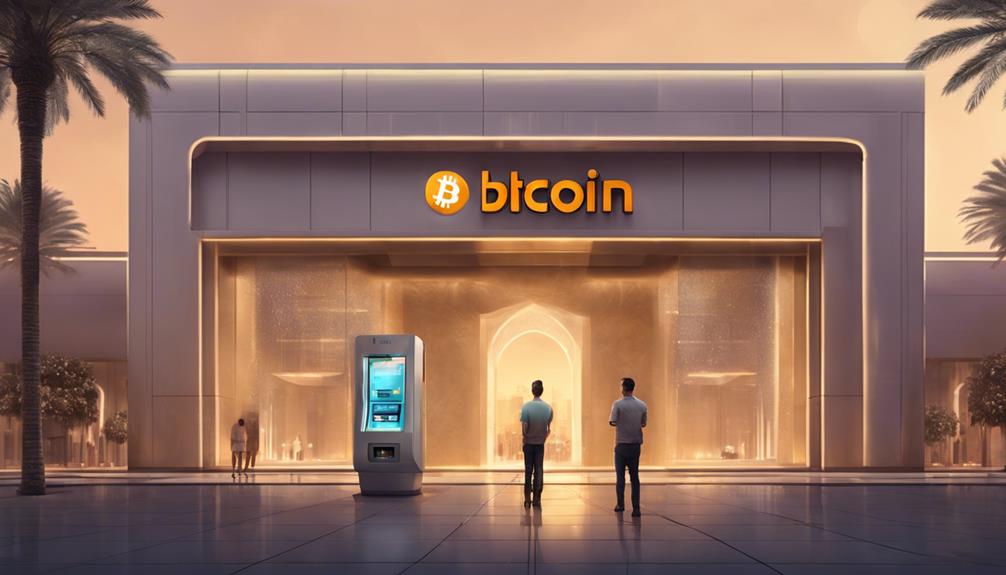Top 3 Future Trends in DeFi Technology

As you explore the evolving landscape of decentralized finance, you'll find that the integration of DeFi with traditional banking systems is not just a possibility, but an emerging reality. This convergence promises to streamline transactions, merging the agility of blockchain technology with the robustness of established financial institutions. Consider how this could impact everything from your daily transactions to global financial operations. The implications for security and efficiency are profound, yet questions about regulatory compliance and the true extent of this integration remain. What will this mean for the future of your investments and financial privacy?
Advances in Scalability Solutions

Scalability challenges are actively being conquered in the realm of decentralized finance (DeFi), enhancing the system's efficiency and user experience. You're witnessing a transformative era where technologies like layer 2 solutions—such as rollups and sidechains—are drastically reducing bottlenecks. These solutions handle transactions off the main Ethereum chain, allowing for faster processing times and significantly lower fees. This isn't just technical jargon; it directly impacts how quickly you can trade, borrow, or lend on DeFi platforms.
Furthermore, sharding is making a splash by dividing the blockchain into smaller, more manageable pieces, or "shards," making the network's throughput exponentially higher. This means that as more users join the DeFi ecosystem, the system can scale without a hitch, maintaining speed and reliability.
These advancements aren't merely experimental; they're being implemented as you read this, making DeFi more accessible. You'll find that with these improvements, the fear of network congestion and exorbitant gas fees is becoming a thing of the past.
As these technologies mature, they promise a smoother, more scalable DeFi experience, ensuring that the system can handle the increasing demand without compromising on performance or security.
Integration With Traditional Finance
Amidst the rapid evolution of DeFi technologies, there's a growing convergence with traditional finance systems, creating a bridge that could revolutionize how you interact with your money. Imagine seamlessly transferring funds between your bank and DeFi platforms, where your assets can earn higher yields than typical savings accounts. This isn't just a distant dream; it's rapidly becoming a reality as DeFi starts to intertwine with established financial institutions.
Banks are beginning to recognize the benefits of blockchain technology, including its efficiency, transparency, and security. By integrating DeFi solutions, they can offer you services such as instant loan approvals, automated savings plans, and more competitive interest rates, all secured on the blockchain.
You'll be able to manage your investments more actively, with tools that were once available only to professionals now at your fingertips.
Moreover, this integration promises to bring greater liquidity to the financial markets. You could potentially access a global pool of assets, allowing for diversified portfolios that were previously hard to manage.
This isn't just about making existing services better; it's about offering you a whole new world of financial opportunities.
Enhanced Privacy Protocols

Many DeFi platforms are now enhancing their privacy protocols to provide you with greater security and confidentiality. This shift is crucial as you navigate a landscape where financial privacy is increasingly prized. By leveraging advanced cryptographic methods like zero-knowledge proofs (ZKPs), DeFi projects are enabling transactions that validate the correctness without revealing any underlying data.
You'll find that these enhanced privacy protocols not only protect your identity but also secure the details of your transactions from prying eyes. This means you can engage in financial activities without the risk of exposing sensitive information to the public ledger. It's a game-changer, especially if you're concerned about maintaining anonymity in your financial dealings.
Moreover, the adoption of privacy-centric solutions in DeFi helps in mitigating the risks associated with front-running and transaction censorship. This ensures that your trades and investments are executed fairly without any undue advantage given to insiders or those with privileged access to transaction data flows.
As you continue to explore the DeFi space, remember that the commitment to privacy isn't just about security. It's about preserving the freedom and integrity of your financial actions in a digital age. Enhanced privacy protocols are here to bolster your confidence and trust in decentralized finance.
Conclusion
As you explore the evolving landscape of DeFi, remember that scalability improvements are just the beginning. Soon, you'll seamlessly transfer funds between traditional banks and DeFi platforms, enhancing both efficiency and security. Moreover, advanced privacy measures, like Zero-Knowledge Proofs, will protect your transactions from prying eyes. Embrace these changes, as they promise to make DeFi more accessible, secure, and intertwined with everyday finance, revolutionizing how you manage and interact with your digital assets.





